Zimbabweans have been presented with an opportunity to speak vehemently against death penalty as government roll out public consultations on the subject matter.
The government of Zimbabwe through the Ministry of Justice, Legal, and Parliamentary Affairs is in the process of drafting the country’s position on death penalty.
Death penalty is a form of capital punishment that can be executed on people sentenced for various crimes, including murder in aggravating circumstances.
The sentence can be imposed and carried out through beheading, lethal injection, shooting or hanging.
In Zimbabwe, the death penalty is Constitutionally permitted in Art. 48(2) which states that “a law may permit the death penalty to be imposed on people convicted of murder committed in aggravating circumstance.”
While, the same section also states that (1) “Every person has a right to life”, death penalty in Zimbabwe, cannot be imposed on persons below the age of twenty-one and above seventy years old.
The same constitutional provision bars the law to impose death penalty on women.
The government said will hold consultations at the grassroots level in March 2023 across Zimbabwe’s provinces in order to amass public opinion on the matter.
Prisoners under the death penalty are often held in solitary confinement, and there are about 62 prisoners on death row in Zimbabwe.
Since 2005, no prisoner has been executed, the country does not even have a hangman.
The Catholic Church’s viewpoint.
The Catholic Church has long held a view against death penalty as it opposes the ‘dignity of every person’ a position that aligns with the right to life.
On October 3, 2020, Pope Francis issued a new encyclical entitled Fratelli Tutti (“All Brothers”), which ratified the position of the Catholic Church against the death penalty and called upon all Catholics to advocate for the abolition of the death penalty worldwide.
The encyclical, one of the highest forms of papal communication, offered guiding principles to help the faithful better apply the teachings of scripture and the Catholic tradition.
Fratelli Tutti is the third encyclical Pope Francis has issued since becoming pope in 2013.
In 2018, Pope Francis revised the Catechism of the Roman Catholic Church, a doctrinal manual used for teaching Catholic children and converts worldwide, to describe the death penalty as “an attack on the inviolability and dignity of the person” that is “inadmissible” in all cases.
In previous papacies, the Church left the room in their formal positions to allow for the use of lawful executions in rare ‘exceptional cases.’
There has been an increasing awareness that the dignity of the person is not lost even after the commission of very serious crimes, and a new understanding has developed of the importance of strict authorizations imposed by the state.
The Catholic Church teaches, in the light of the Gospel, that the death penalty is unacceptable and inadmissible hence the faithful should advocate for its abolition. .
According to the Catechism of the Catholic Church (ccc 2267). The right to life is a fundamental right and should not be compromised due to a criminal offense.
“Today, however, there is an increasing awareness that the dignity of the person is not lost even after the commission of very serious crimes… but, at the same time, do not definitively deprive the guilty of the possibility of redemption.”
“Consequently, the Church teaches, in the light of the Gospel, that “the death penalty is inadmissible because it is an attack on the inviolability and dignity of the person”,[1] and she works with determination for its abolition worldwide.”
The role of the faithful in Zimbabwe
The Catholic Parliamentary Liaison Officer, in the Zimbabwe Catholic Bishops’ Conference (ZCBC) Fr. Phillip Kembo said the Catholic Church in Zimbabwe strongly believes that “the sanctity of life should be upheld and that authorities must refrain from applying the death penalty as ultimate punishment by taking the life of a person, even after being convicted of a heinous crime.
He said the faithful must join the campaign in opposing the death penalty and respect the right to life as a fundamental right.
The liaison officer quoted that ‘the gospel of life must be promoted in every situation, even when one’s freedom is restricted due to incarceration.
The death penalty by its very nature is cruel and unnecessary’ (Pope St. John Paul II, 27th January 1999).
As the government of Zimbabwe roll out public consultations, in the same spirit of Synodality, the faithful are encouraged as individuals and groups to fully participate and make their voices hear don the matter.
Public consultations are done through physical meetings in different areas as well as written letters to the relevant portfolio committees.
By Tadiwa Madava

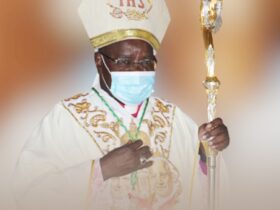

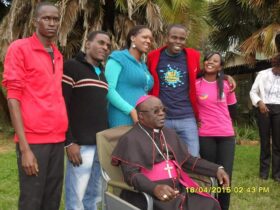
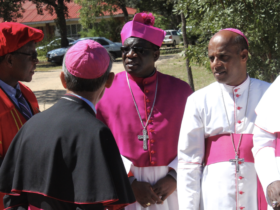



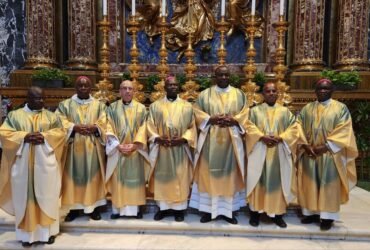
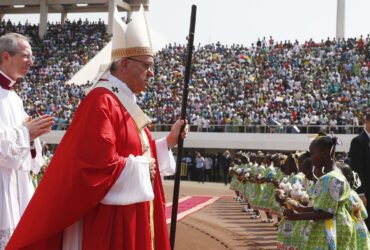
Thank you for this enlightening piece